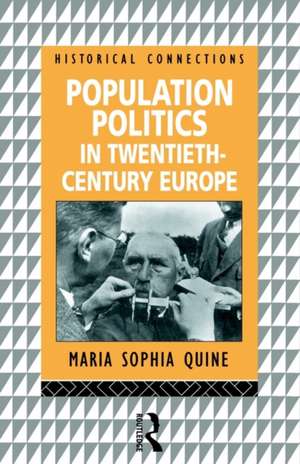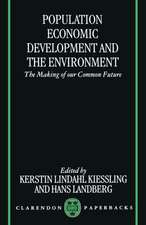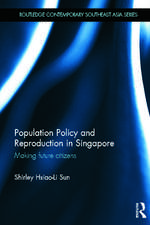Population Politics in Twentieth Century Europe: Fascist Dictatorships and Liberal Democracies: Historical Connections
Autor Maria-Sophia Quineen Limba Engleză Paperback – 2 noi 1995
* provides an original, comparative treatment of European population policies
* gives the historical background to twentieth-century population policies
* considers topics such as racism and sexism in Nazi ideology, Eugenics in England, family allowance schemes in France, and sterilization
* synthesizes the latest research in different fields and countries.
Preț: 359.55 lei
Nou
Puncte Express: 539
Preț estimativ în valută:
68.80€ • 71.84$ • 56.81£
68.80€ • 71.84$ • 56.81£
Carte tipărită la comandă
Livrare economică 15-29 aprilie
Preluare comenzi: 021 569.72.76
Specificații
ISBN-13: 9780415080699
ISBN-10: 041508069X
Pagini: 160
Ilustrații: black & white illustrations
Dimensiuni: 138 x 216 x 15 mm
Greutate: 0.21 kg
Ediția:New.
Editura: Taylor & Francis
Colecția Routledge
Seria Historical Connections
Locul publicării:Oxford, United Kingdom
ISBN-10: 041508069X
Pagini: 160
Ilustrații: black & white illustrations
Dimensiuni: 138 x 216 x 15 mm
Greutate: 0.21 kg
Ediția:New.
Editura: Taylor & Francis
Colecția Routledge
Seria Historical Connections
Locul publicării:Oxford, United Kingdom
Recenzii
`... a useful compendium of information about the personalities, organizations, and ideology of European pronatalism, and its English language bibliographies will be useful starting places for students undertaking historical research in this field.' - David L. Sills, Social Science Research Council, New York
'An illuminating introduction to a crucial, and still unresolved, set of historical issues.' - Paul Weindling, English Historical Review, November 1997
'An illuminating introduction to a crucial, and still unresolved, set of historical issues.' - Paul Weindling, English Historical Review, November 1997
Cuprins
Introduction; Chapter 1 From Malthus to Mussolini; Chapter 2 Fathers of the nation; Chapter 3 Nazi population policy; Chapter 4 Conclusion;
Descriere
Maria Sophia Quine demystifies the population politics of fascist regimes by looking at them in the wider context of how societies in general reacted to the profound economic changes brought by industrialisation.

































